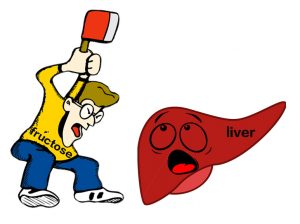
New Study on Fructose and HFCS
Fructose is a form of sugar found in many sweet fruits and vegetables. On the TQI Diet we avoid all excess fructose by avoiding any food with fructose on its ingredient label. This also includes those “natural” low glycemic – but high fructose – sweeteners such as agave syrup or agave nectar.
The amount of fructose allowed on the TQI Diet is the amount we get from fruits and vegetables that we can digest properly. Any fructose not absorbed into our body ends up in the intestines where it causes bloating, gas, diarrhea and/or constipation. The rule is that we can freely eat fructose rich fruits (such as peaches and tomatoes) unless we begin to have digestive issues.
Fructose does not enter the blood stream directly, it does not raise our blood sugar levels but instead is processed by our liver. When we eat too much fructose we burden our liver which leads to wide range of health issues, such as high blood fats, hypertension, gout, fatty liver, and inflammation generally.
The high fructose corn syrup in many processed foods is usually a mixture of fructose and glucose in about the same ratio found in white sugar. Manufacturers using HFCS have long asserted that HFCS will not cause the same problems that foods with added fructose can cause. However, a new study found that HFCS is just as hard on the body as excess fructose.
This study looked at healthy young men and found that HFCS raised LDL (the disfavored form of cholesterol) and apolipoprotein B (which some consider a better indicator of heart disease risk than LDL) more than fructose alone did. Pure fructose did raise triglycerides and uric acid levels more than HFCS, but both had measurable negative effects.
The study concluded that HFCS is as troublesome as excess fructose. The TQI conclusion is that it is fine to eat sweet fruits and vegetables in amounts that do not generate digestive issues AS LONG AS we avoid all other added sweeteners, including any added fructose or high fructose corn syrup.
The study referred to: Hieronimus B,Medici V,Bremer AA, et al.,Synergistic effects of fructose and glucose on lipoprotein risk factors for cardiovascular disease in young adults. Metabolism (2020) https://doi.org/10.1016/j.metabol.2020.154356
Picture CC by Nutritional Doublethink (https://www.flickr.com/photos/nutritionaldoublethink/25729137683)